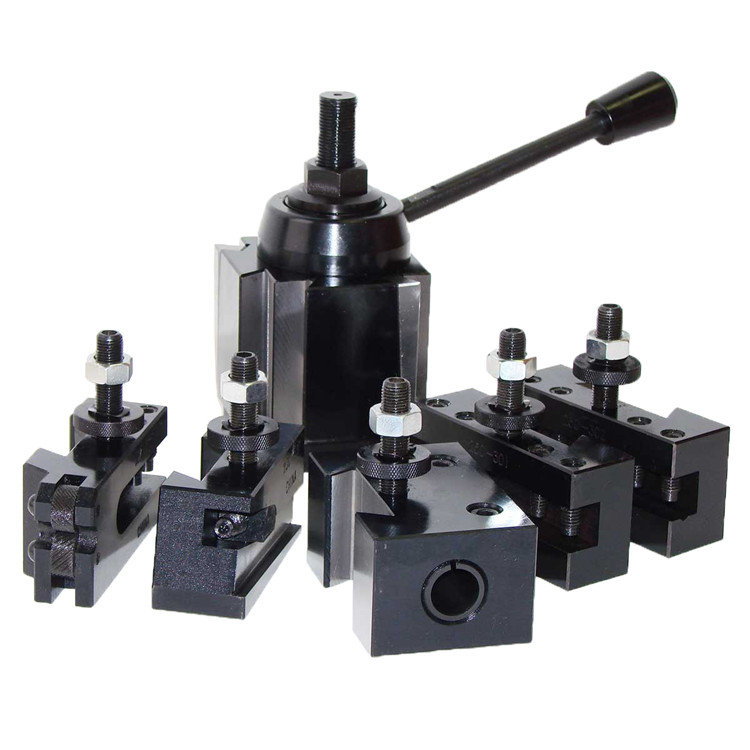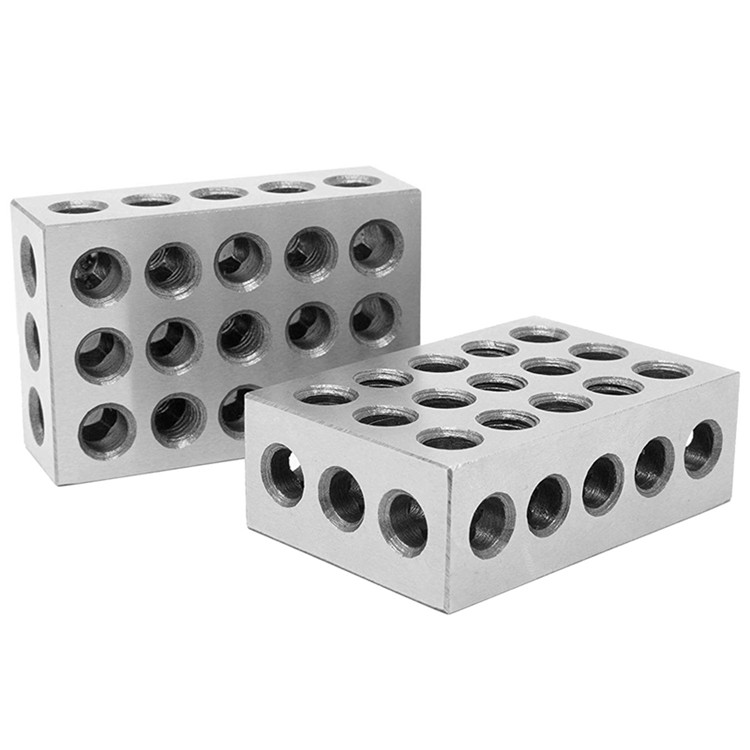Wholesale Collets
Wholesale collets are essential components in machining, used to securely hold cutting tools or workpieces. This guide covers everything from types and materials to selection criteria and maintenance, helping you make informed purchasing decisions and optimize your machining processes. Understand the nuances of ER, R8, 5C, and other collet systems to ensure precision and efficiency in your operations.
Understanding Collets: The Foundation of Precision Machining
A collet is a subtype of chuck that forms a collar around an object to be held and exerts a strong clamping force on the object when it is tightened, usually by means of a tapered outer surface. It may be used to hold a workpiece or a tool.
What is a Collet and How Does it Work?
At its core, a collet is a sleeve or cone with internal gripping surfaces. When inserted into a mating tapered receptacle, the collet collapses, gripping the tool or workpiece securely. The clamping force is distributed evenly, providing high precision and rigidity. This makes them ideal for applications where accuracy and repeatability are critical.
The Advantages of Using Collets
Compared to other workholding methods, collets offer several advantages:
- High Accuracy: Collets provide excellent concentricity and runout accuracy.
- Strong Clamping Force: They can hold workpieces or tools very securely.
- Quick Changeover: Changing collets is typically faster than changing chucks.
- Versatility: A wide range of collet sizes and types are available for different applications.
Types of Collets: Choosing the Right One for Your Needs
The world of collets is diverse. Selecting the right type is crucial for optimal performance. Here's a breakdown of the most common types:
ER Collets: The Industry Standard
ER collets (also known as DIN 6499) are arguably the most popular type of collet system used in machining today. Their versatility and affordability have made them an industry standard. They are characterized by their slotted design, allowing for a wide clamping range. Wayleading Tools offers a wide variety of ER collets to match your specific tooling needs.
ER Collet Sizes and Applications
ER collets come in various sizes, including ER8, ER11, ER16, ER20, ER25, ER32, ER40, and ER50. Smaller sizes are suitable for small-diameter tools and high-speed applications, while larger sizes are used for more demanding tasks. For example:
- ER16 Collets: Commonly used for end mills and drills in CNC milling machines.
- ER32 Collets: Suitable for larger end mills and face mills.
- ER40 Collets: Ideal for heavy-duty cutting operations.
R8 Collets: A Classic for Milling Machines
R8 collets are a self-releasing style often found on Bridgeport-style milling machines. They are known for their simplicity and ease of use.
Features and Benefits of R8 Collets
R8 collets have a straight shank with a keyway that aligns with the spindle. They are tightened using a drawbar that runs through the spindle. Because of their design, they allow for quick tool changes and are relatively inexpensive.
5C Collets: For Lathes and Grinders
5C collets are commonly used in lathes, grinders, and other machines that require high precision. They feature an external thread for easy installation and removal.
Applications of 5C Collets
5C collets are well-suited for holding round, square, and hexagonal workpieces. They provide excellent concentricity and are available in a wide range of sizes.
Other Types of Collets
Besides the common types mentioned above, other specialized collets exist for specific applications, including:
- DA Collets: Used in high-precision grinding and milling applications.
- TG Collets: Offers high gripping power and are suitable for heavy-duty machining.
- Morse Taper Collets: Used to hold tools with Morse taper shanks.
Choosing the Right Collet: Factors to Consider
Selecting the right collet involves considering various factors, including:
Tool Shank Size and Type
The most crucial factor is the tool shank size. The collet must match the shank diameter of the tool you are using. Using the wrong size can damage the collet and the tool.
Machine Spindle Type
The collet must be compatible with the machine's spindle. Ensure that the collet system (e.g., ER, R8, 5C) matches the spindle interface.
Material
Collets are typically made of spring steel or high-speed steel. Spring steel offers good elasticity and is suitable for general-purpose applications. High-speed steel collets are more durable and can withstand higher temperatures.
Accuracy Requirements
If you require high precision, choose collets with low runout. High-quality collets can provide runout accuracy of 0.0002' (0.005mm) or better.
Clamping Range
Consider the clamping range of the collet. ER collets, for example, have a specified clamping range, such as 1mm. Choose a collet that can accommodate the tool shank size within its clamping range.
Collet Maintenance: Ensuring Longevity and Accuracy
Proper maintenance is crucial for extending the life of your collets and maintaining their accuracy.
Cleaning and Inspection
Regularly clean collets with a soft cloth and a mild solvent to remove dirt and debris. Inspect them for signs of wear or damage, such as cracks, rust, or deformation. Damaged collets should be replaced immediately.
Lubrication
Apply a thin coat of lubricant to the collet and the spindle taper to reduce friction and prevent corrosion. Use a lubricant specifically designed for machine tools.
Proper Storage
Store collets in a clean, dry place to prevent rust and corrosion. Consider using a collet rack or case to protect them from damage.
Where to Buy Wholesale Collets: Finding the Right Supplier
Purchasing wholesale collets can save you money and ensure a consistent supply of high-quality tools. Wayleading Tools is a leading supplier of wholesale collets, offering a wide range of types and sizes to meet your specific needs. When selecting a supplier, consider the following:
Quality
Choose a supplier that offers high-quality collets made from durable materials. Look for suppliers that have a good reputation and positive customer reviews. Ensure the supplier adheres to industry standards such as DIN.
Price
Compare prices from different suppliers to find the best deal. However, don't sacrifice quality for price. Cheap collets may not be accurate or durable, leading to costly problems in the long run.
Selection
Choose a supplier that offers a wide selection of collets to meet your current and future needs. A good supplier should stock a variety of types, sizes, and materials.
Customer Service
Choose a supplier that provides excellent customer service. They should be responsive to your questions and concerns and be able to provide technical support if needed.
Collet Safety: Best Practices for Machining
Safe machining practices are essential for preventing accidents and injuries. Here are some important safety tips to follow when using collets:
Wear Safety Glasses
Always wear safety glasses when operating machine tools. Flying chips and debris can cause serious eye injuries.
Use the Correct Collet Size
Never use a collet that is too large or too small for the tool shank. This can damage the collet, the tool, and the machine.
Tighten Collets Properly
Use the correct torque when tightening collets. Over-tightening can damage the collet, while under-tightening can cause the tool to slip.
Inspect Collets Regularly
Regularly inspect collets for signs of wear or damage. Replace damaged collets immediately.
Conclusion: Mastering the Art of Collet Selection and Usage
Wholesale collets are indispensable tools for machining professionals. By understanding the different types, selecting the right one for your application, and following proper maintenance and safety practices, you can optimize your machining processes, improve accuracy, and extend the life of your tools. Consider the factors discussed in this guide and contact Wayleading Tools for all your collet needs.
Disclaimer: The information provided in this article is for general informational purposes only. Always consult with a qualified professional before making any decisions related to machining or tooling.
Sources:
- DIN 6499: DIN Standards
Related products
Related products
Best selling products
Best selling products-
 Type M Cone Tungsten Carbide Rotary Burr
Type M Cone Tungsten Carbide Rotary Burr -
 Precision Vernier Caliper With Nib Style Jaws Of Metric & Imperial For Industrial
Precision Vernier Caliper With Nib Style Jaws Of Metric & Imperial For Industrial -
 DIN6537L Metric Solid Carbide Twist Drill With Internal Coolant & External Coolant
DIN6537L Metric Solid Carbide Twist Drill With Internal Coolant & External Coolant -
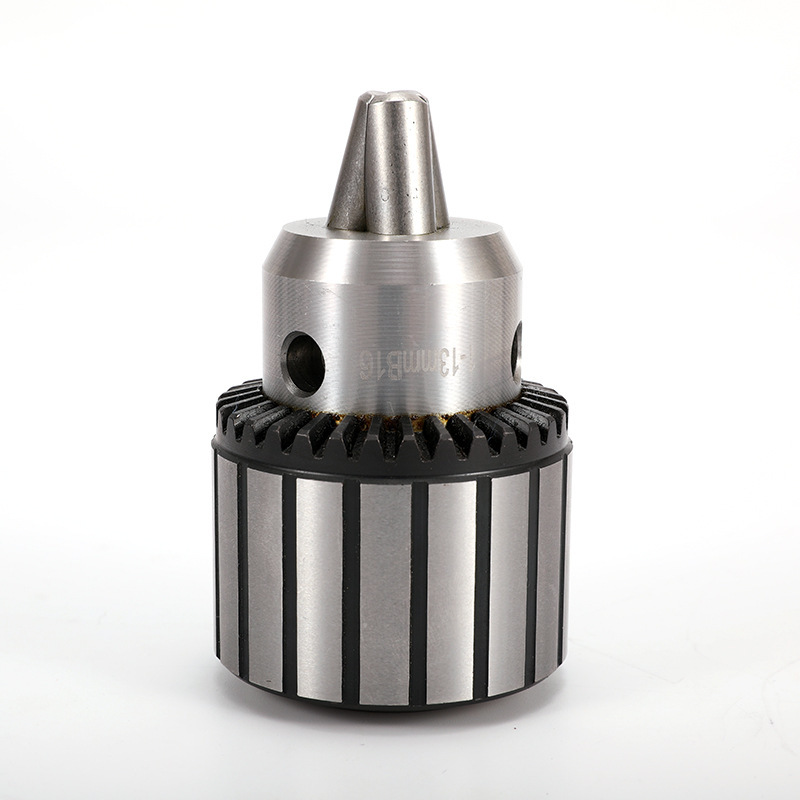 Key Type Drill Chuck With Heavy Duty Type
Key Type Drill Chuck With Heavy Duty Type -
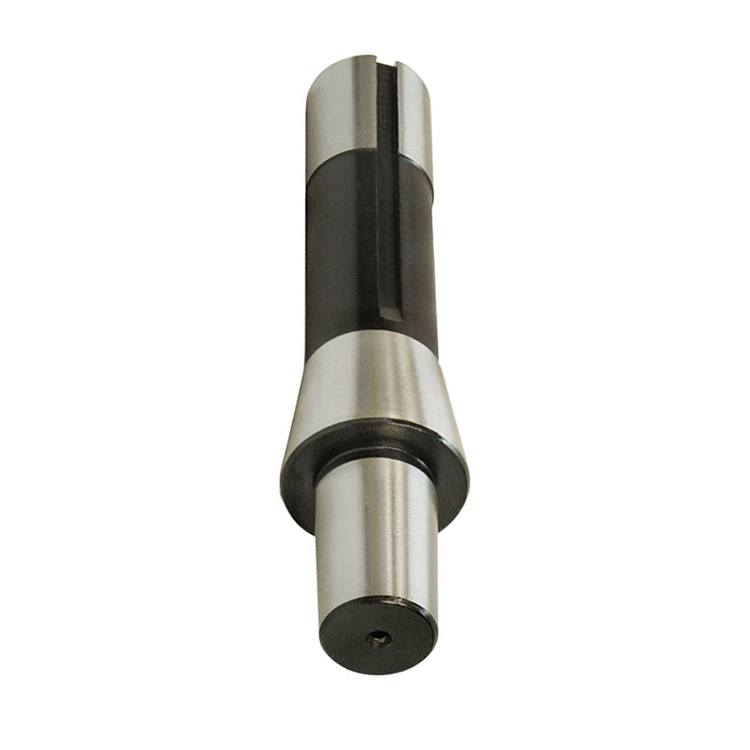 R8 Drill Chuck Arbor For Milling Machine
R8 Drill Chuck Arbor For Milling Machine -
 Precision V Block And Clamps Set With Heavy Duty
Precision V Block And Clamps Set With Heavy Duty -
 CCMT Turning Insert For Indexable Turning Tool Holder
CCMT Turning Insert For Indexable Turning Tool Holder -
 Precision Monoblock Vernier Caliper With Nib Style Jaws Of Metric & Imperial For Industrial
Precision Monoblock Vernier Caliper With Nib Style Jaws Of Metric & Imperial For Industrial -
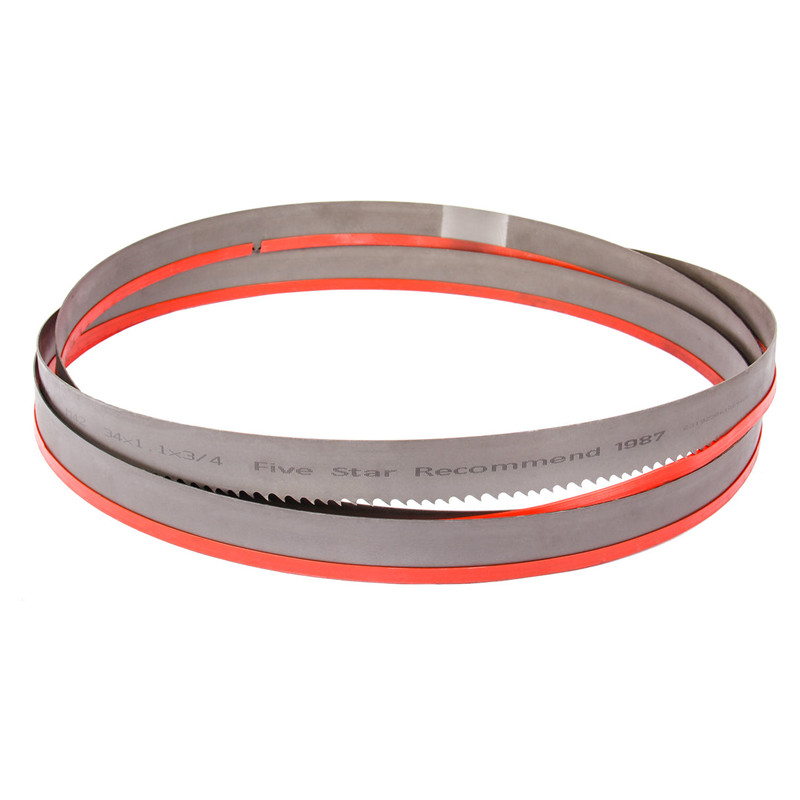 M51 Bi-Metal Bandsaw Blades For Industrial Type
M51 Bi-Metal Bandsaw Blades For Industrial Type -
 HSS Threading Taps – ISO 529, Straight Flute, Spiral Flute & Spiral Point
HSS Threading Taps – ISO 529, Straight Flute, Spiral Flute & Spiral Point -
 30PCS HSS Metric And Inch Size MINI Tap & Die Set
30PCS HSS Metric And Inch Size MINI Tap & Die Set -
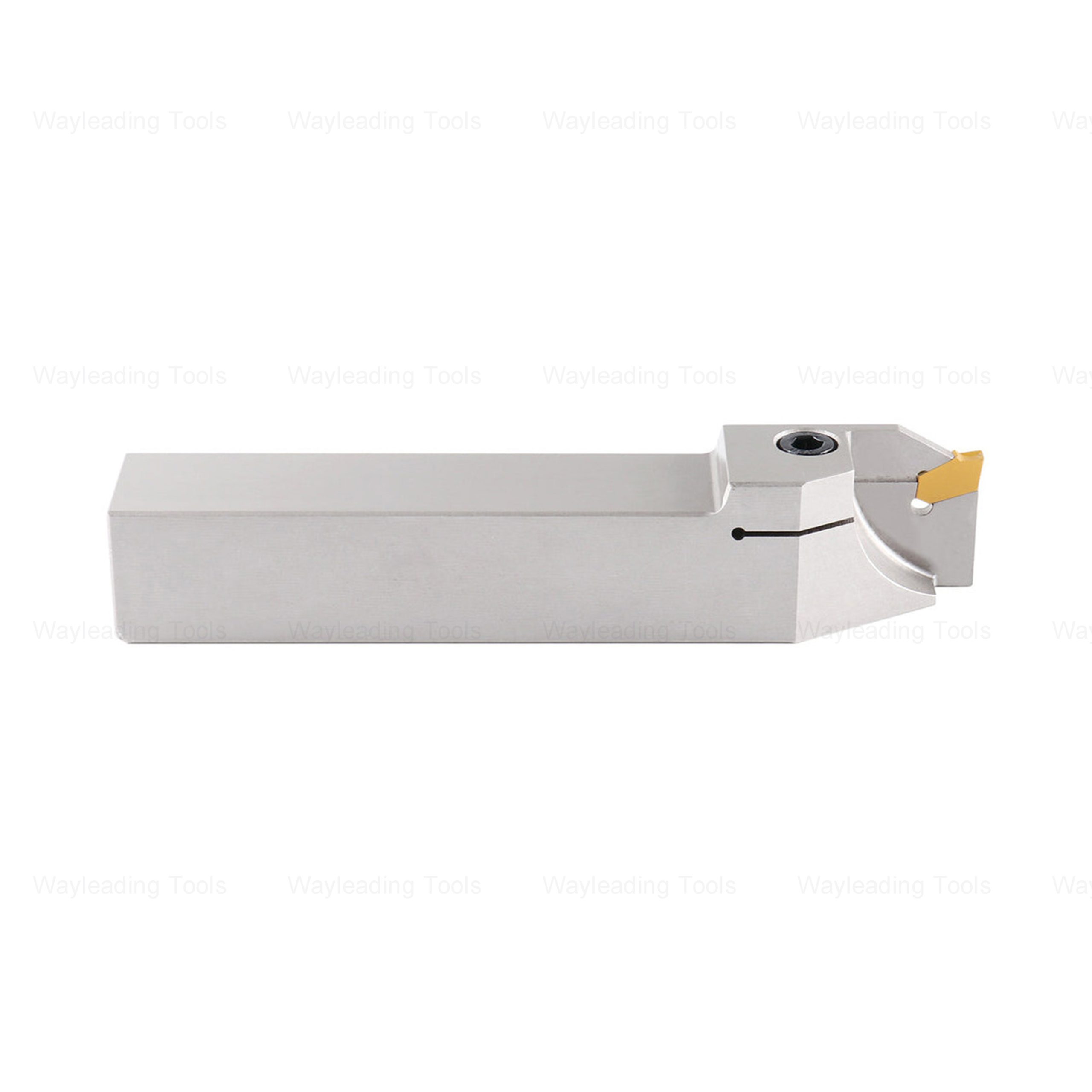 QA Grooving & Cut-Off Tool Holder – Right- and Left-Hand Types
QA Grooving & Cut-Off Tool Holder – Right- and Left-Hand Types

